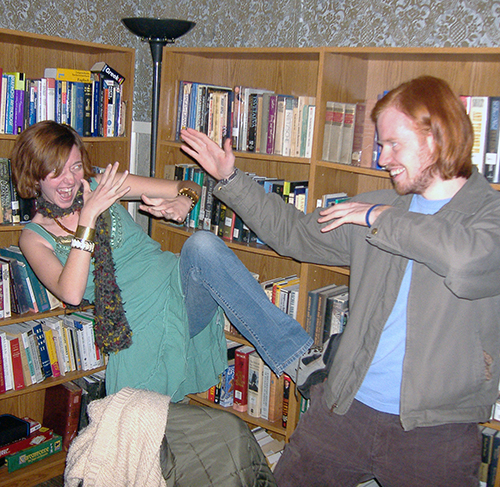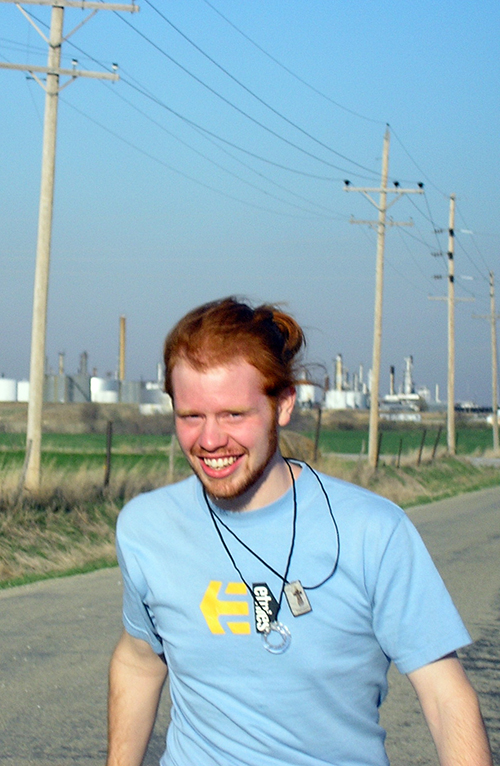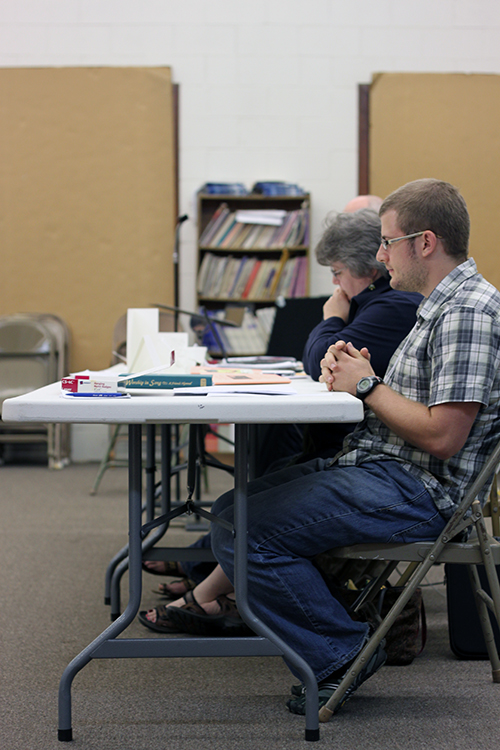 As a teenager, I always loved a good fight. I got a huge adrenaline rush from hashing out Very Important Issues with peers and elders alike. More importantly, I believed that having honest, open, and sometimes brutal discussion was the way to find the truth. My preference for direct speech was near-absolute, even when it alienated and hurt others. I could not understand why most people were not eager to have these kinds of conversations, why they shied away from open conflict in the pursuit of truth. Fact was, I judged most people pretty harshly for their lukewarmth and refusal to face interpersonal conflict.
As a teenager, I always loved a good fight. I got a huge adrenaline rush from hashing out Very Important Issues with peers and elders alike. More importantly, I believed that having honest, open, and sometimes brutal discussion was the way to find the truth. My preference for direct speech was near-absolute, even when it alienated and hurt others. I could not understand why most people were not eager to have these kinds of conversations, why they shied away from open conflict in the pursuit of truth. Fact was, I judged most people pretty harshly for their lukewarmth and refusal to face interpersonal conflict.
I have grown a lot in the last decade. I’ve learned that my penchant for directness can be off-putting, even terrifying for a lot people. I’ve reflected on the ways that my personal intensity can damage relationships, and I’ve toned it down. As surprising as it may seem to many people who haven’t known me that long, the Micah you have come to know and love is a truly mellow creature compared to ten or fifteen years ago. I’ve come a long way in developing that filter between thinking something and saying something. I’ve gotten a lot more gentle.

And – surprise, surprise! – I have a lot more friends now. Turns out, people are more likely to want to spend time with you when you’re not constantly calling them out on their failings and inconsistencies. It also turns out that my need to speak truth to power all the time had at least as much to do with my own brokenness as it did with anyone or anything I happened to be critiquing at the time.
In my late twenties, I chilled out a little bit; I stepped back and took it easier on others – and myself. Taking the log out of my own eye has been good for my soul. I’m a much less furious, judgmental person than I used to be. With God’s help, I hope to be healed and humbled even more.
Years in the Quaker community have taught me many ways to communicate indirectly, rather than my natural style of full-frontal truth-telling. I have learned that, quite often, it is appropriate for me to take a step back and moderate myself so that I do not frighten people with my personal intensity.
Often, this less-direct way of communicating has worked out very well. I resolved many disputes without leaving anyone feeling attacked or judged. Yet, there were times that I over-corrected; I sometimes even found myself veering into passive aggression. At other times, in order to avoid stepping on others’ toes, I failed to engage in healthy leadership that would benefit the community. As hard as it was to believe, given my adolescent disposition, I was becoming increasingly conflict-avoidant!
 Why? I had a lot of reasons. To begin with, my experiences in several Quaker communities had taught me that being too assertive was dangerous, and that I could get more done through passive influence than direct argument. The Quakers I was hanging around with put a great value on being nice and conforming to a general image of harmony. I had to learn how to make change without directly, openly challenging the status quo.
Why? I had a lot of reasons. To begin with, my experiences in several Quaker communities had taught me that being too assertive was dangerous, and that I could get more done through passive influence than direct argument. The Quakers I was hanging around with put a great value on being nice and conforming to a general image of harmony. I had to learn how to make change without directly, openly challenging the status quo.
Perhaps a better reason for avoiding conflict has been that as I have grown to love other people more, I am more sensitive to the fact that conflict can be painful. Why upset my friends if I don’t have to? Even worse, conflict has the potential to severely disrupt our relationships. When conflict and disagreement make the atmosphere of our community uncomfortable, it is very common for people to simply leave rather than face that discomfort. I have been a part of many small, fragile groups, and I haven’t wanted to unleash a dispute that would destroy the whole community!
Despite all of the risks involved, though, I am increasingly convinced that healthy conflict is an essential ingredient to growing, vibrant relationships. Without open discussion, disagreement and ruffled feathers, it is very difficult for us to be broken open and made tender to how God is calling us to live together. As immature as I was, I think that my teenage self was basically right about at least one thing: Conflict is a matter of truth, and when we refuse to engage openly in honest disagreement, we risk losing the ability to face reality together.
This is my challenge going forward, and I offer it as a challenge for all of us who desire to live in loving communities that are rooted in the truth: How can I embrace those times when I find myself at odds with others, welcoming conflict as an opportunity to speak the truth in love and listen deeply to where the Holy Spirit is leading us together? What would it look like to release my own need for control and safety so that Christ-in-me can come to live and reign in our midst? How can I invite Jesus to take risks through me, in spite of me, engaging the difficult conversations with the healing and uniting power of God?